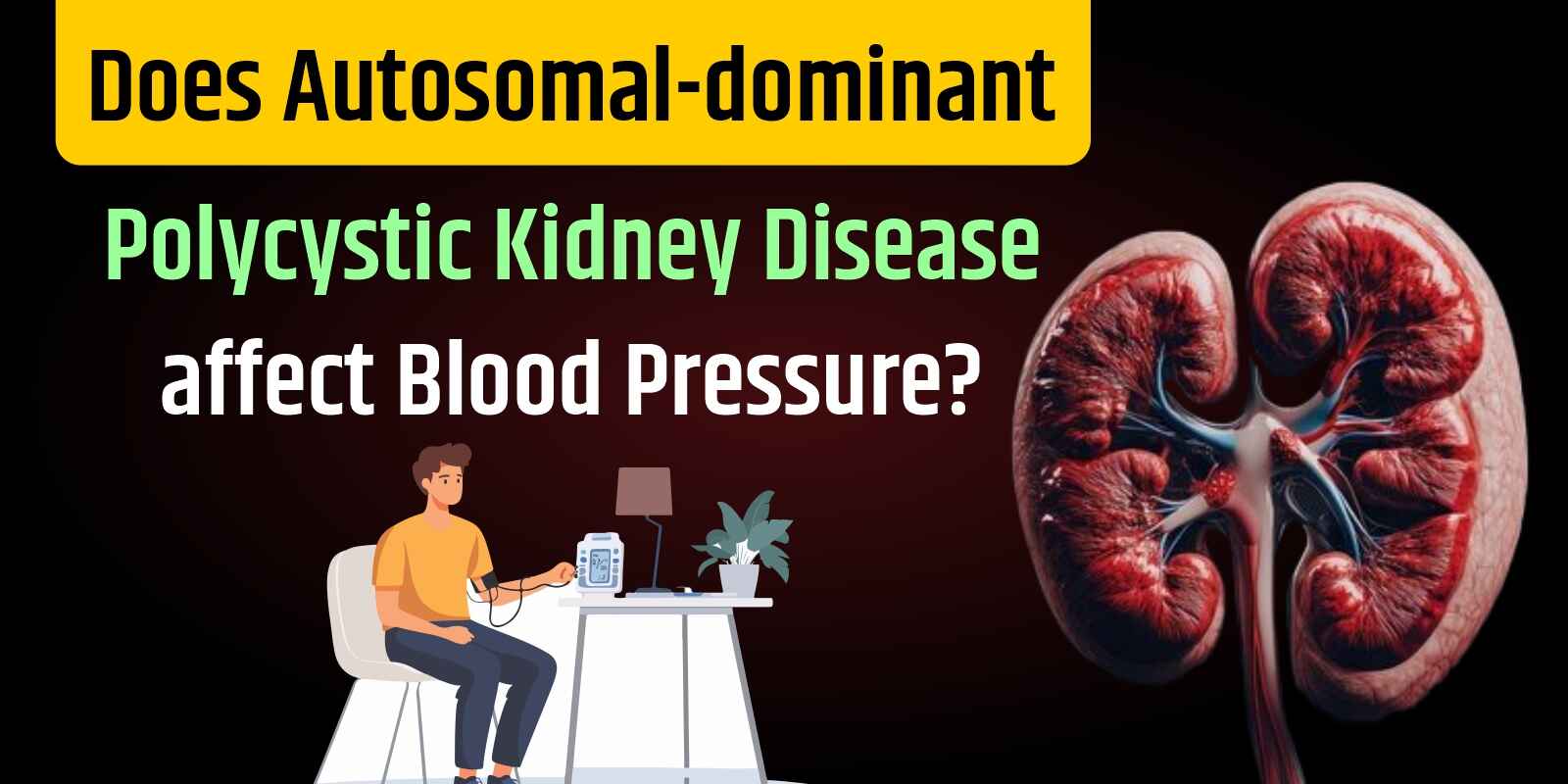
Autosomal dominant polycystic kidney disease is an inherited disorder characterized by the presence of genes in an individual. Yearly, millions of people are affected with autosomal dominant PKD, which is characterized by the presence of innumerable cysts on the kidneys.
As the cysts grow in size and number, ADPKD results in the enlarged size of the kidneys. This increased size kidney may not function well and results in end-stage renal disease if not managed well. Most people with ADPKD may survive well with an ayurvedic approach and lead a normal life until the symptoms relapse once again.
One of the most prevalent comorbidities of ADPKD is high blood pressure. High blood pressure or hypertension is the increased flow of blood against the wall of the blood vessels.
Autosomal dominant PKD can affect blood pressure in two ways:
The genes that trigger the occurrence of ADPKD are not only important for kidneys but are also found in the blood vessels linings. When these genes lose their function, they disrupt the way blood vessels tighten and relax. In people with ADPKD, blood vessels have a different mechanism of tightening and narrowing themselves. They tend to be smaller than usual, which means confined space for the blood to flow willingly.
Unhealthy kidney function due to ADPKD can also activate hormones that control blood pressure. Although there are a number of reasons these hormones may get activated- kidney cysts can damage tiny blood vessels in the kidneys, making it harder for the blood to flow through them. As this happens, the hormone levels in the body rise as the body tried to get more blood.
High blood pressure tends to worsen as the kidneys tend to lose their function with the progression in ADPKD.
Since poorly controlled blood pressure can further damage your kidneys, it is essential to get it under control. Here are some tips that may help:
People with PKD are recommended a renal-friendly diet to manage signs and complications such as hypertension. Sodium is essential- agreed, but too much sodium in your diet can be unhealthy. It results in fluid retentions. Similarly, try to include fresh fruits and vegetables instead of frozen foods packed with too much sodium.
Many people with polycystic kidney disease and hypertension need to take medications. Talk to your doctor about the things that you should adhere to while taking these medications. While taking ayurvedic treatment for ADPKD, you may also get benefitted from hypertension. Ayurvedic medications help manage the complications and symptoms linked with ADPKD.
People with ADPKD are at an increased risk of multiple comorbidities, especially if blood pressure is not controlled.
These may include:
These conditions put you at the risk of potentially fatal problems such as abnormal heart rhythm, stroke, heart palpitations, and heart attack.
If you have PKD, we recommend ayurvedic treatment to prevent the risk of life-threatening morbidities. Ayurveda has the potential to bestow life to patients suffering from various chronic disorders.
Get to us to know more!
Disclaimer: Consult the ayurvedic doctor before consuming ayurvedic medications and have the ayurvedic treatment under a well-certified ayurvedic kidney care hospital. For further advice, you can use this helpline: +91-9821929797 number or visit www.karmaayurvedahospital.com.
"Ayurveda is not just a system of medicine; it's a way of life. Connect with us to embrace a lifestyle that nurtures your body, mind, and soul."

Certificate no- AH-2023-0186
JAN 05,2023-JAN 04,2026